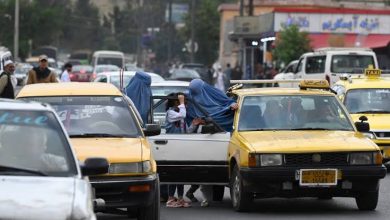
Over 70% of Afghan Women Face Serious Barriers to Humanitarian Aid, UN Women says
The United Nations Entity for Gender Equality and the Empowerment of Women (UN Women) has reported in a new publication that more than 70% of women and girls in Afghanistan are facing extensive challenges in accessing humanitarian aid.
This report, published on Sunday, April 27, is based on interviews with more than 20,000 individuals across all 34 provinces of Afghanistan.
It emphasizes that gender discrimination, restrictive Taliban policies, and systematic barriers have worsened the humanitarian crisis in the country.
According to the report, the Taliban’s strict laws—including the requirement for a male guardian (mahram) to accompany women, the ban on women working in NGOs and international agencies, and the prohibition of girls’ education beyond the primary level—have significantly reduced access to essential services such as healthcare, education, and nutrition. These restrictions have also excluded women from community decision-making and disrupted efforts to meet their specific needs.
The UN Women states that only 43% of school-aged girls have access to primary education, and virtually no girls aged 13 to 17 are allowed to attend school. UN Women stresses that this denial of education perpetuates the cycle of poverty and weakens Afghanistan’s social and economic development.
The report adds that female-headed households are facing challenges such as unsafe housing, lack of warm clothing in winter, and increasing financial pressure. It reveals that many of these families have been forced to skip meals, pull children out of school, and even resort to early marriage for girls. Their debt levels are significantly higher compared to male-headed households.
The report also notes that restrictions on freedom of movement, a shortage of female health workers, and financial barriers have disrupted women’s access to healthcare. This situation has particularly affected maternal health, fertility rates, and women’s mental health. Pregnant and breastfeeding women are also suffering from malnutrition and inadequate diets.
The report warns that Afghan women and girls, due to the erosion of civil rights and exclusion from social participation, are now more vulnerable to gender-based violence, forced marriage, and displacement than ever before.
This report comes as the Taliban have steadily intensified restrictions on women and girls in the four years since regaining control of Afghanistan.
